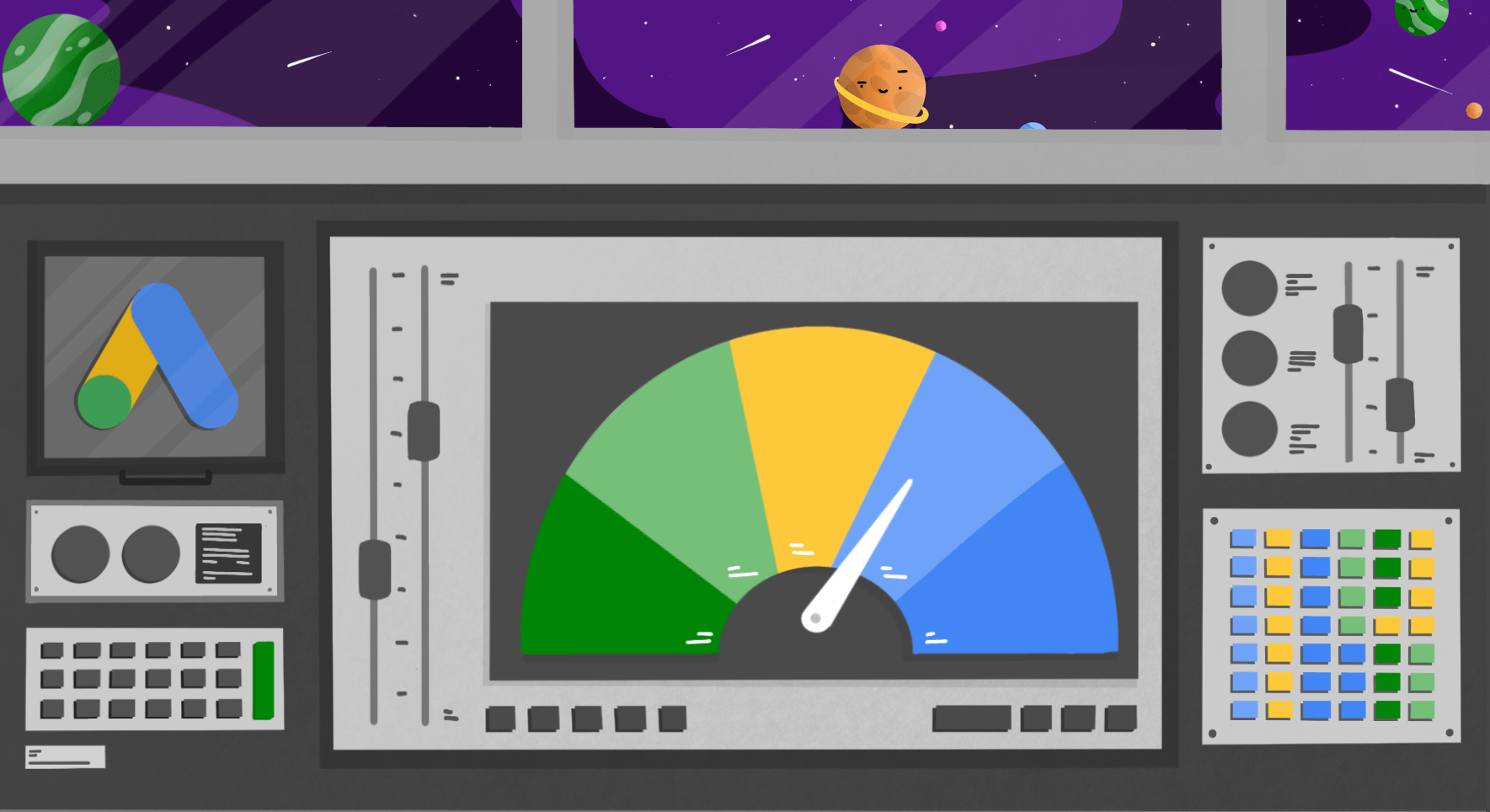Cost-per-click (CPC) is one of the most commonly tracked advertising KPIs, largely because it plays a significant role in determining the profitability of PPC campaigns.
Lowering your Google Ads CPC can help you maximise ad spend efficiency, especially if you’re in an industry with notoriously high CPC costs.
But lowering CPC in your paid search ads isn’t as simple as reducing your bids. While overpaying for clicks can drain your ad budget, underpaying can limit lead quality and reduce overall campaign effectiveness.
In this article, we’ll focus on how to lower your Google Ads CPC without compromising lead quality or sales. While many of these tactics can be used across various PPC campaigns, we’ll focus primarily on paid search, which is where many marketers spend the bulk of their PPC budget.
What is the Average Google Ads CPC by Industry?
Some industries have inherently higher costs-per-click than others. So it’s important to be realistic about how much you can lower your CPC by. This table shows each industry’s average CPC from highest to lowest:
| Industry | Average Cost-Per-Click (Search)* |
| Legal Services | $8.46 / £6.79 |
| Dental Services | $6.69 / £5.37 |
| Home Improvement | $5.74 / £4.61 |
| Business Services | $3.80 / £3.05 |
| Industrial & Commercial | $3.50 / £2.81 |
| Career & Employment | $3.43 / £2.75 |
| Beauty & Personal Care | $3.42 / £2.75 |
| Finance & Insurance | $3.41 / £2.74 |
| Health & Fitness | $3.21 / £2.58 |
| Medical Services | $3.17 / £2.55 |
| Personal Services (e.g. Weddings, Cleaners) | $2.97 / £2.39 |
| Vehicle Repair, Service & Parts | $2.71 / £2.18 |
| Education | $2.68 / £2.15 |
| Animals & Pets | $2.48 / £1.99 |
| Furniture | $2.02 / £1.62 |
| Vehicle Sales | $1.89 / £1.52 |
| Shopping & Gifts | $1.54 / £1.24 |
| Real Estate | $1.51 / £1.21 |
| Restaurants & Food | $1.49 / £1.20 |
| Travel | $1.39 / £1.12 |
| Sports & Recreation | $1.15 / £0.92 |
| Fashion | $1.04 / £0.84 |
| Arts & Entertainment | $0.85 / £0.68 |
*Exchange rates correct as of June 2023.
Use your industry’s average CPC as a benchmark. If your average CPC is much higher, let’s find out why you might be overspending on Google Search ads.
5 Factors That Affect Your Google Ads CPC
These five factors can determine how much you pay per click:
- Quality score — A low Quality Score (i.e. less than 5/10) can increase your CPC by up to 400%.
- Keyword bids — Keyword level bids will override the limit you set at campaign or ad group level.
- Competition — Lots of competition for the same keyword will drive up the cost.
- Bidding strategy — Using a smart bidding strategy like target ROAS or maximise conversions gives Google the power to bid on high-cost keywords.
- Campaign setup — Settings including device targeting, location, and ad scheduling can all impact your CPC.
Protect Your Search Ads From Fake Traffic
Save up to 20% of your advertising budget by automatically eliminating fake ad clicks across all paid channels.
10 Ways to Lower Your Google Ads CPC
Ready to lower paid search CPC in Google Ads? These ten strategies will set you up for lower costs and better ad spend efficiency.
1. Improve Quality Score
Quality Score has a significant impact on your cost-per-click. Low scores increase CPC, while high scores can reduce it. For the biggest savings, you’ll need a score of nine or ten, though anything above five can reduce your CPC:
Quality Score is influenced by three major factors: expected click-through rate, ad relevance, and landing page experience.
Here are five ways to improve these factors and boost your Google Ads Quality Score:
- Update your keyword list — Google prioritises ads that are best suited to the target keyword, so choose relevant keywords that your ideal audience is searching. For example, if you’re a luxury brand, avoid keywords that include “cheap” or “budget” and vice versa.
- Improve ad relevance — Make sure your ads and landing pages are relevant to your keyword(s) and deliver on the user’s search query. Optimise your URL, headlines, descriptions, and extensions for your chosen keywords.
- Create a great landing page experience — Landing page content should reflect your ad copy. Use the same or similar keywords in your page title, and keep your messaging consistent.
- Optimise sitelink extensions — Adding relevant sitelink extensions can increase your expected click-through rate.
- Test your ads — Experiment with your ad copy and landing page content to optimise overall user experience. This can impact all three factors that contribute to Quality Score.
2. Choose Your Keywords Wisely
Although lowering your Google Ads CPC is a useful goal, sometimes you need to pay a bit more to compete for the most valuable keywords. Let’s say you’re a Manchester-based conveyancing firm. You might consider bidding on the following keywords:
| Keyword | Search volume | Estimated CPC | Competition |
| conveyancer | 6,600 | $5.05 | 0.33 |
| conveyancer uk | 50 | $6.21 | 0.54 |
| conveyancer manchester | 40 | $7.57 | 0.32 |
*Search volume, estimated CPC, and competition data taken from SEMRush
The estimated cost-per-click increases as the location becomes more specific. That’s because you’re more likely to find highly relevant users who want to use your services.
It may be more valuable to set a higher bid limit on “conveyancer manchester” than it is to bid lower on a more generic term like “conveyancer” or even “conveyancer uk”.
Keep the bigger picture in mind when selecting keywords and bids. Metrics like return on ad spend and cost per lead are often more important than CPC in determining marketing efficiency. In our ad spend optimisation webinar, Clickoo’s Head of Paid Media, Gareth Westhead, explained why marketers must take a longer-term view:
You can obviously save money in the short term. But you’ll likely see a dip in performance three to six months down the line. In certain circumstances I’ve seen those kinds of cutbacks do irreparable damage to revenue growth.
3. Experiment with Long-Tail Keywords
Long-tail keywords are a great way to find low-cost, high-value keyword variants that are valuable to your business.
Let’s take the example above. The short-tail keyword “conveyancer manchester” has a lot of value, but it only speaks to user location. Related long-tail keywords will enable you to tap into other markets.
Here are some long-tail keywords this business might consider bidding on:
| Keyword | Estimated CPC | Competition |
| do i need a conveyancer | $6.23 | 0.39 |
| do i need a solicitor when buying a house | $4.20 | 0.44 |
| how much does a conveyancer cost | $3.62 | 0.47 |
| free conveyancing quotes | $3.94 | 0.03 |
| instant conveyancing quotes | $9.27 | 0.42 |
| instant online conveyancing quotes | $11.89 | 0.15 |
The search volume for long-tail keywords is often lower, but the value can be higher, depending on the intent behind it. The CPC for “instant online conveyancing quotes” is elevated because it’s a high intent search term with high selling potential.
But that doesn’t mean all conveyancers should immediately bid on it. Questions to ask yourself when deciding which keywords to add to your campaign include:
- Is it relevant to my business? For example, if your conveyancing company doesn’t offer instant online quotes, avoid this expensive keyword.
- Who’s searching for this term? Consider the intent of the person searching. Someone asking if they need a conveyancer isn’t ready to buy, so think about how much you’re prepared to bid for this keyword.
- Is it worth testing this keyword? Know how much budget you have to experiment with new keywords, and where this is best applied. Stop spending if a keyword variant isn’t delivering results after 8 weeks.
- What’s the competition like? High competition can drive up the actual CPC, so you’ll need to keep a close eye on the performance of competitive long-tail keywords.
4. Add Negative Keywords
Negative keyword lists prevent your ad showing for irrelevant queries.
Say you’re targeting “conveyancing manchester” and this leads to your ad showing for “conveyancing jobs in manchester”. Anyone who clicks your ad will see your landing page, know they’re in the wrong place, and bounce from the page. This can damage your Quality Score and increase your cost-per-click.
The best way to keep your negative keyword list updated is to regularly check the Search Terms report. When you see a search term that’s not relevant to your ad, just add it as a negative.
5. Be Careful With Broad Match
Broad match can match your ads with more users. But it gives Google the freedom to show your ads for a huge range of keywords, many of which might not be relevant. So broad match keywords can drain your ad budget if you use them too freely.
In many cases, it makes financial sense to stick with exact match keywords. These tie your ads closely to your target keywords, so you’re more likely to appear for highly relevant searches.
But broad and phrase match keywords can still help you find related keywords that may be valuable for your business. This is known as query mining.
For example, a broad match for “conveyancing manchester” could make your ad eligible to show for “conveyancing stockport” and “conveyancing oldham”, both of which might generate valuable leads. You can then add them to your campaign as exact match keywords.
However, broad match could also display your ad for “conveyancing training courses in manchester” or “what is conveyancing”, neither of which are likely to add much value.
Keep a close eye on your spend to keep the costs of your chosen broad match keywords under control.
6. Create Separate Ad Groups For Products/Services with Similar Value
Use ad groups to control and measure CPC by creating separate ad groups for different products based on the value they bring to your business.
This could be as simple as creating one ad group per product. You could also separate cheap products from expensive ones, or bundle products with higher conversion values together.
This will allow you to track and adjust the CPC for each ad group relative to the revenue they generate. Higher value products/services may warrant a higher CPC, while you can reduce bids for lower value products.
7. Use Ad Extensions
Ad extensions help your ad take up more of the search engine results page, especially on mobile. So they can increase the chances of someone clicking your ad. According to Google, ads with four sitelink extensions see a 20% higher click-through rate.
Higher CTRs often translate to better Quality Scores, which in turn lower your CPC.
8. Map Landing Pages to Search Intent
In any Google Ads campaign, your ads and landing pages should reflect the search intent of the target keyword. As well as improving ad relevance, this can deter those who are looking for other results from clicking your ad.
Take the following long-tail keywords:
- do i need a solicitor when buying a house
- instant online conveyancing quotes
The first query is informational. The second is transactional. So the search intent behind them is very different.
Each of these keywords requires a different ad and landing page that answers the question or provides the service requested by the user. Otherwise they’ll bounce from the page, wasting your ad budget and reducing your Quality Score.
9 Use Enhanced CPC Bidding (Or Lower Your Maximum Bid)
Using an unmodified smart bidding strategy gives you less control over your ad spend, as Google will automatically bid for each search based on your campaign goals. So if you’re focused on lowering your Google Ads CPC, it may be a good idea to use a manual bid strategy like Enhanced CPC. According to Google:
“Unlike target CPA and target ROAS Smart Bidding, which automatically set bids based on your cost per conversion and return-on-ad-spend targets, Enhanced CPC will try to keep your average CPC below the max.”
However, you can also limit your maximum bid limit in a target ROAS campaign. In your portfolio bid strategies, click the strategy you want to set a limit for, then scroll down to settings. Click advanced settings, then set your maximum bid limit:
Remember that adjusting your bids will have a knock-on effect on how often your ad is served, so consider the average CPC for your target keywords before reducing your bids.
10. Reduce Spend During Lower Performing Periods
Discover which times, days, and seasons are most profitable for your ad campaigns. Consider reducing your budgets outside these windows while keeping them high at times of peak performance. This will help you reduce your overall CPC without sacrificing performance.
You can also apply this to different devices, audiences, and locations. Speaking on one of our previous webinars, Yoann Ferrand, PPC Consultant at Opteo, says:
If you’re having a bad week, save your budget for a better performing period. This mindset of creating a saving pot isn’t common. Just remember you can’t escape from quarterly targets – the money saved needs to be spent later to help hit them, you can’t sit on it indefinitely.
Stay in Control of Your PPC Budget With Lunio
Reducing cost-per-click isn’t the only way to maximise your marketing budget. Lunio can help you reduce wasted ad spend by up to 25%, giving you more money to allocate to your top-performing campaigns.
By eliminating invalid traffic from your ad campaigns, you can ensure every click you pay for is from a genuine user who has a legitimate chance of conversion. That’s how we helped Canto increase their pipeline value by $350,000 within just two months.
Try Lunio free for two weeks and get a comprehensive fake traffic report, so you can see how much you could save by blocking non-converting clicks.
Protect Your Search Ads From Fake Traffic
Save up to 20% of your advertising budget by automatically eliminating fake ad clicks across all paid channels.









